
E-journal February 2, 2010 |
Messy Beliefs and Energy Drainers View past ejournals HERE>> Sign up for our newsletter below. Vampires? Or maybe ticks? I know that some of you strongly objected to my use of the analogy of vampires when talking about people, activities, and things that drain us of our energy and contribute to the clutter and overwhelm in our lives. So to those who don't like the vampire analogy, I apologize. Maybe I should use a different analogy—like "energy ticks"—but "ticks" don't seem to carry the same punch. I guess the recent worldwide interest in vampires made me think they are the perfect analogy. Unless you’ve been living in a cave for the last few years, you’re probably aware of how popular vampires have become. Vampire books, vampire TV shows, vampire movies. For about six months last year I couldn’t go through the checkout line at Kroger without being surrounded by magazines with Robert Pattinson’s face on the cover—the oh-so-sensitive and romantic vampire in Twilight and New Moon. I kept asking my friends, “What’s the deal with vampires? Why are people so fascinated with stories about vampires?” Personally, the idea of vampires gives me the heebbidy jeebidies. I remember being eleven years old, staying up late at night reading Dracula by Bram Stoker and being so scared I could barely breathe. I was in my grandfather’s library and everyone else in the house was asleep. My grandparents’ house had a coal furnace in the basement that made strange howling and clanking noises and their wood floors creaked even when no one was walking on them. By the time I finished the book, I was so scared it took me almost an hour to get the courage to sprint down the hall to where my sisters were sleeping, jump into my bed, and pull the covers over my head. I swear I still have splinters in my feet from skidding around the corner in my mad dash to safety. For years afterward I had dreams about vampire bats gliding around the ceiling of my bedroom. For awhile I even kept garlic under my pillow because I read somewhere that garlic will repel vampires. So to me, anything that seems like a vampire is serious business. And I guess I wanted to convey to you how serious and destructive it is to our lifestyles to continue to allow people, activities and things to clutter our lives and suck us dry of energy, motivation, and enthusiasm. The last issue of the e-newsletter began discussing time and energy vampires and focused on people and activities that drain our energy. If you haven’t read the last issue, you can READ IT HERE. This issue will be about how lifestyles and beliefs can drain us of the vitality we need to function well. Lifestyle as an Energy Drainer For example, I am a person who needs solitude in order to recharge and reconnect with what is important to me. Yet for years I lived in a four room house with three active boys and five or six employees coming in and out of an upstairs office all day. It was a radical invasion of my privacy, and some days I thought I would lose my mind. I had to force myself to find reflective time, to create "happiness islands" for myself. Sometimes these "happiness islands" were as simple as taking a walk by myself, or shutting myself in my bedroom with a good book. Sometimes they had to be more extreme, like flying to Dallas to participate in a horse-judging seminar, or taking the boys to the beach for a few days. In the process, I found out which colors, smells, sights, and activities renew me. So we are surrounded with constant questions that undermine our convictions—questions from our relatives, our friends, members of our church. Even worse, we have to battle questions from own minds like "Can I really pull this off? Do I know what I'm doing? Am I doing too much or too little? Am I using the right teaching material? Am I simply wasting time? Am I going to warp my children and make them total misfits?" When we entertain a belief in scarcity, we limit ourselves. We tend to not step outside of our own "boxes," because we feel we must hoard what little we have and we feel that no matter how much we try, our efforts won't be "enough." We are always afraid we are going to "run out" of time, energy, money, opportunities, etc., etc. When we choose to believe in scarcity, we not only limit ourselves, but we insult God—the God Who is Enough, and Who, in fact, promises to give to us exceeding abundantly, pressed down, and running over. We also lock ourselves into anxiety over finances and time pressure, and into regret and grief over wasted time, energy, and money. One of the reasons our family has tried to keep Hudson Taylor's biography in print is that he was a man with a firm conviction that God would always "be enough," and his response to every extremity was, "Now we have an opportunity to see what God can do!" A friend happened to mention that if you do something for six months, it becomes a habit and it no longer requires any extra emotional or physical energy. Silly as it may sound, I thought, "Maybe I can try making up my bed for six months." Well, that was twenty five years ago, and I don't even think about making up the bed anymore. I just do it when I get up. Since that time, I have used the power of repetition to eliminate the draining effect of certain tasks that I dislike. I've found out that social scientists call this "unconscious competence." All tasks, particularly tasks that require overcoming a certain amount of inner resistance, have a "competency" curve where once you reach a level of mastery, no further mental, emotional or physical effort is required. We see this all the time when we teach a child to read. For months it seems like we are getting nowhere, but all of a sudden our child reads effortlessly. What I’m going to say next will probably touch a few nerves, but I think that Christian teachings on “destiny” and “finding the will of God” can sometimes be just as crippling as the beliefs the public school system teaches. I can’t tell you how many talented Christian young people I meet who never really try anything because they aren’t sure it’s “God’s will” or “God’s destiny” for them. It’s almost as if those destiny teachings create such a fear of “missing it” that people are afraid to step out in any direction because they can’t ever be sure that the direction they pick will be THE direction God really wants for them. And God forbid that they actually pursue a direction they might like—that would be selfish. When I was first learning to ride a horse, I would sit on the horse and try to get it to turn around while it was standing still. The instructor would tell me over and over, “You can’t turn the horse until it’s actually moving.” So I would have to get the horse moving before I could turn it in the direction I wanted. In other words, you have to have forward motion in some direction in order to choose a direction. So, to those people who are immobilized by their fears of not getting it “right” I say, “Just start…move toward something you might want…and trust that God is big enough to turn your horse if you’re moving in the wrong direction.” Besides, how could we ever possibly know whether the direction we are taking is right or wrong, good or bad? Anyone who’s been in a relationship with God for any length of time knows that what we think is bad often turns out to be one of the “all things” that God works together for our good. So it’s better to adopt the Nike slogan—“Just do it.” Get moving in the direction of the things you want and let God work out your destiny and His perfect will for your life. 4. The fear of being “selfish” This fear is something I've only seen in Christians and it is closely related to fear #3. Somehow Christianity has twisted pursuing happiness into selfishness. The belief goes something like this: If you’re doing something you like to do, there has to be some sort of selfish desire for personal pleasure involved. This fear of being selfish is just as immobilizing as the fear of failure and not getting things right. Guess what? You are a fallen creature, even in your being-sanctified state, and there will be very little you ever do in your life that isn’t motivated by some desire to be happy, secure, content, successful, etc. Having those desires and acting on them doesn’t make you selfish, it makes you human. Yes, those desires can become distorted and selfishly expressed as "me-first," but you don’t have to automatically assume that moving in the direction of what you want is selfish. 5. The fear that things will never change These days with your children will pass you by in an instant. All of my children are now well beyond the diapers and peanut-butter stage and what I miss most are the snuggles, the little hands reaching up to me, the plaintive cries for "just one more story," the proud calls of "Mama, come quick and see what I did!" How could I ever have thought it was a hardship to read Mike Mulligan? I would gladly trade all of the clean houses in the world for more of those stressful years when my children were small and every day held a thousand new wonders for them to discover. In the next issue, we will focus on underlying relational problems such as tension between husband and wife, conflict between parents and children, or estrangement between fellow Christians that drain us of our energy and contribute to the clutter and overwhelm in our lives. Until then, have a great week! Ellyn Helpful resources for the cluttered and overwhelmed:
|
Our friend Susan is a home schooling Mom and she is very concerned about her children's health. Her son, Liam is allergic to almost every chemical known to man, so Susan has to be very, very careful what she allows him to play with. When he gets together with other children and they play with Play Doh, Liam can't play. The dyes and chemicals in the dough can not only make him very sick, they might kill him. Home School and Home Business With over 4,000 copies sold in just a few months, I Saw the Angel in the Marble is becoming a home schooling best seller! This book represents the best of 15 years of Elijah Company articles. Find our more HERE>>
If you missed one of our From Home School to Home Business Conferences, you missed a great time.People who attended told us that it changed their lives—not only in the area of home schooling, but also in the area of creating their own sources of home income.This set is huge and filled with useful and encouraging information about how to be successful at home schooling and at home business! Find out more about this life-changing set of CDs HERE>> Building the Business of Your Dreams (8 CD Set) We've had requests for just the business portion of the From Home School to Home Business Seminar, so have developed a set of the business CDs from that set. It contains 8 CDs and includes sessions on The Entrepreneurial Mind, Multiple Streams of Home Income, Discovering Your Ideal Life and Ideal Business (2 CDs) , Developing a Business Plan (2 CDs), and The Importance of Business Relationships. Plus, there is a very important and insightful interview on Redeeming the Marketplace. Find out about this life-changing set of CDs HERE>>
Left Brained Finance for Right Brained People is hands down the best book we've ever found about money and finances and how to manage both. It could be used as the core curriculum for a Money and Finance unit with junior highs and up or by parents to have an overall understanding of money and how it works so they can teach their children. GO HERE>> to order.
Helpful resources for the cluttered and overwhelmed: The Overload Syndrome by Dr. Richard Swenson. This book is written like a “prescription” for overloaded lives. Through humor and a great deal of common sense, Swenson shows how you can carve out margin in four key areas of your life: emotional, physical, time and financial. By becoming Goal-Focused and God-Focused, you can unplug and eliminate a large portion of the stress in your life. This book can truly change your life if you follow its “prescriptions” for moving from a life of overload to a life like God intended it to be. The three books below take an organizational approach to clutter-overwhelm and are packed with tips and hints for tackling clutter and disorganization. Each takes a slightly different approach but each has provided me with indispensible help in curing my packratness and disorganization:
Getting Organized by Stephanie Winston Simply Organized by Emilie Barnes I don't care what your budget, buy these two books from Jeff Campbell: Clutter Control and Speed Cleaning. Why buy them? Because if you're like me, you probably already thought you know how to clean but couldn't stand to. Campbell explains that the main reason you can't stand to clean is because you're using all the wrong methods and the wrong products. Quite If you are a hard-core clutterer and have tried the more traditional approaches, the two books below are for you: Sidetracked Home Executives: From Pigpen to Paradise by Pam Young and Peggy Jones. These two sisters share the system of organizing household chores that they created to make managing a home less time consuming and more efficient. This recently updated handbook explains how to reduce chaos and clutter and achieve organisation in the home.
And finally, two books about creating the life you really want:
Be sure to sign up for our ejournal! Sign up below. Any article appearing on this website may be copied or forwarded electronically provided that proper credit is given and that the article is not substantively modified.
No article may appear in whole or in part in a publication sold for profit or as part of any commercial endeavor without the written consent of Home School Marketplace. Any reprint must include an acknowledgement of where it came from and the sentence "Sign up for the Home School Marketplace newsletter at www.homeschoolmarketplace.com." |

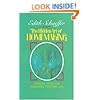
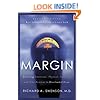 Margin
Margin


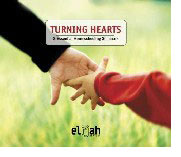


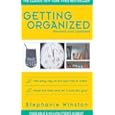 Getting Things Done
Getting Things Done  frankly, my mother never showed me how to clean a house and I can safely say -- since my mother won't be reading this -- that my mother knew zip about the right way to clean a house. First, get rid of your clutter using
frankly, my mother never showed me how to clean a house and I can safely say -- since my mother won't be reading this -- that my mother knew zip about the right way to clean a house. First, get rid of your clutter using 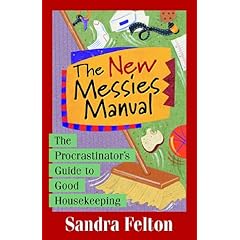 The New Messies' Manual: The Procrastinator's Guide to Good Housekeeping
The New Messies' Manual: The Procrastinator's Guide to Good Housekeeping The Path of Least Resistance
The Path of Least Resistance